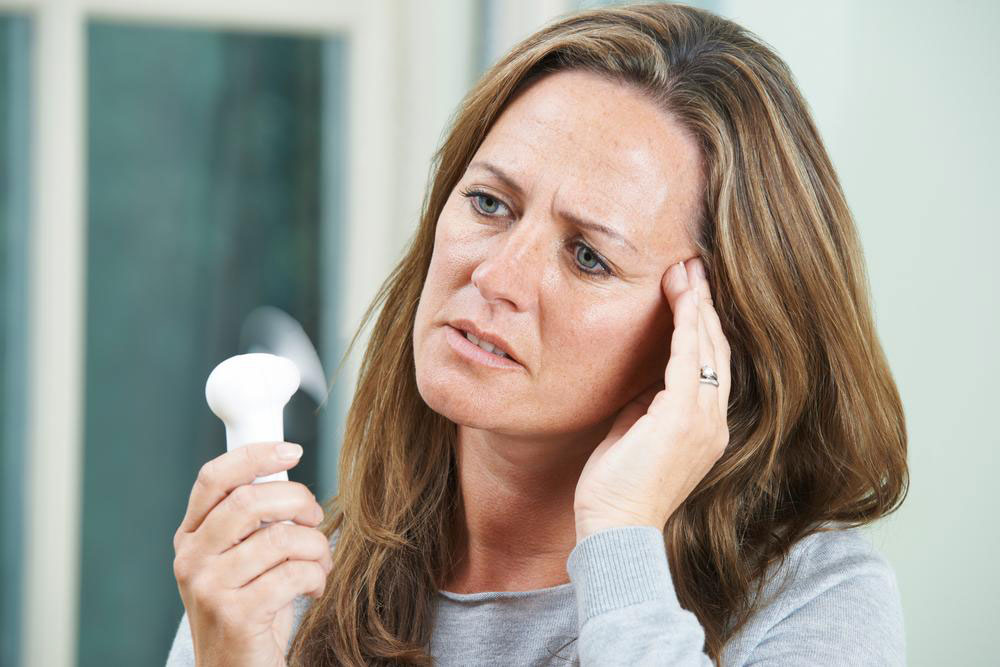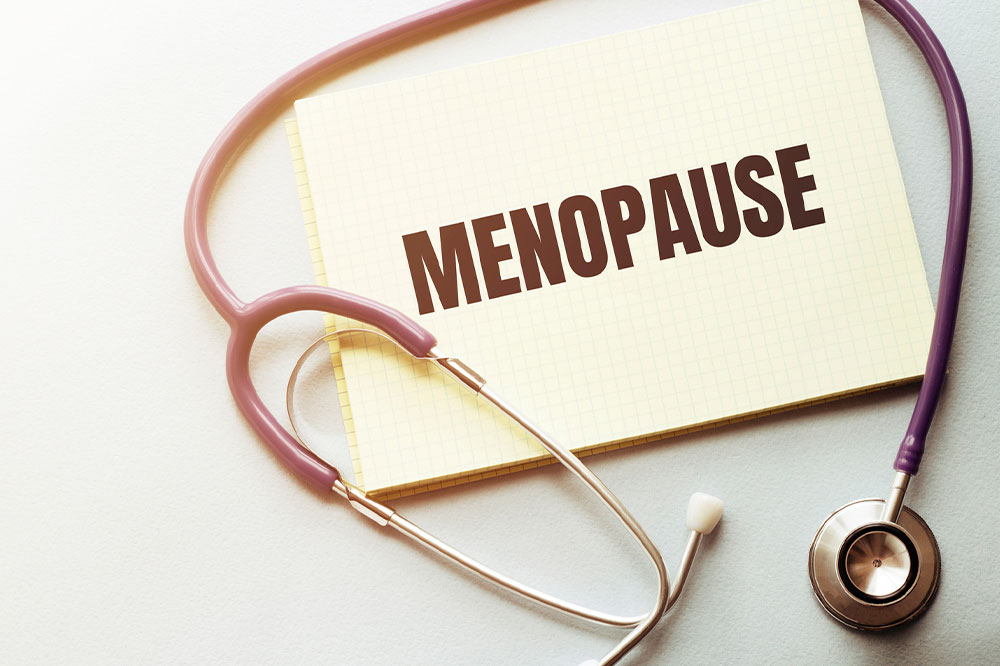Comprehensive Guide to Recognizing Menopause: Symptoms and Effective Management Techniques
This comprehensive guide explores the top signs of menopause, including hot flashes, night sweats, hair changes, mood swings, and more. It provides practical advice, lifestyle tips, and medical options for managing these symptoms effectively. By understanding these key indicators and adopting proactive strategies, women can navigate menopause with greater comfort and health. Early recognition and consultation with healthcare professionals are emphasized to ensure personalized care. Discover essential tips and treatments to ease hormonal shifts and improve quality of life during this natural transition.

Comprehensive Guide to Recognizing Menopause: Symptoms and Effective Management Techniques
Entering your 40s or beyond often brings a host of physical and emotional changes. For many women, these changes are indicative of menopause, a natural biological phase characterized by the end of reproductive years. While the average age of menopause in women in the United States is around 50 years old, recent lifestyle factors—such as stress, diet, and health habits—can influence this timeline. Recognizing early signs of menopause is crucial for managing symptoms effectively and maintaining quality of life during this transition.
Menopause involves complex hormonal shifts, primarily a decline in estrogen and progesterone levels, which can lead to a variety of symptoms. These symptoms differ from woman to woman but tend to fall into several common categories. Being proactive about these signs enables early intervention, whether through lifestyle modifications or medical treatments, ensuring a smoother transition through menopause.
Early recognition and prompt consultation with healthcare professionals are essential. If you experience any of the symptoms listed below, seek expert advice promptly. For comprehensive guidance on menopause management, explore the links provided to access specialized treatments, therapies, and medication options.
1. Sudden Hot Flashes and Flushing
One of the hallmark signs of approaching menopause is experiencing hot flashes—sudden and intense feelings of heat that often spread across the face, neck, and chest. These episodes may last from a few seconds to several minutes and can be accompanied by sweating, chills, and an irregular heartbeat. Declining estrogen levels disrupt the body’s temperature regulation, causing these uncomfortable episodes. Managing hot flashes involves a combination of lifestyle adjustments, dietary choices, and sometimes medical interventions. Wearing lightweight, breathable clothing, avoiding triggers like spicy foods, caffeine, and alcohol, and practicing relaxation techniques such as deep breathing or mindfulness can help mitigate their intensity. Regular physical activity and maintaining a cool environment, especially during sleep, can also reduce the frequency of hot flashes. In some cases, healthcare providers may prescribe medications like hormone replacement therapy (HRT) or non-hormonal options such as selective serotonin reuptake inhibitors (SSRIs). The FDA-approved medication, Intrarosa, containing prasterone (DHEA), is effective in addressing vaginal dryness often associated with hot flashes, delivering symptomatic relief.
2. Night Sweats Disrupting Sleep
Night sweats are excessive sweating episodes that occur during sleep, often leading to waking up drenched, uncomfortable, and sleepy. These episodes are a subset of hot flashes but occur during evening hours and can severely impact sleep quality. Factors like room temperature, bedding materials, and sleepwear significantly influence night sweat severity. Optimizing sleep environment by increasing room ventilation, lowering ambient temperature, and using light, moisture-wicking bedding can help provide relief. Wearing loose, breathable pajamas and using a fan or air conditioning can enhance comfort. Chronic sleep disturbances not only cause fatigue but also worsen mood and cognitive function. Therefore, addressing night sweats is essential for overall health and well-being during menopause.
3. Hair Thinning and Changes in Hair Texture
Hormonal fluctuations during menopause often lead to noticeable changes in hair, including thinning, dryness, brittleness, and increased hair fall. Reduced estrogen levels impact the hair growth cycle, making hair more fragile and less vibrant. To support hair health, women can implement gentle hair care routines, avoid harsh chemical treatments, and use natural remedies. For instance, applying egg whites or aloe vera masks can strengthen hair shafts. Incorporating omega-3-rich foods such as fish or taking fish oil supplements can promote scalp health. Managing stress through relaxation practices can also prevent excessive hair loss. Ensuring adequate nutritional intake, especially biotin and vitamins D and E, supports hair regeneration and prevents excessive shedding.
4. Emotional and Mood Swings
Many women experience emotional turbulence during menopause, including mood swings, irritability, feelings of worthlessness, and anxiety. These symptoms are primarily due to hormonal fluctuations affecting neurotransmitter levels in the brain. Maintaining emotional stability requires a proactive approach. Engaging in regular physical activity releases endorphins that elevate mood, while balanced nutrition supports brain health. Vitamins like B12 and supplements such as St. John’s Wort may help improve mood swings, although consulting with a healthcare provider is advised before starting any new supplement. Mindfulness, meditation, and stress-reduction techniques like yoga can foster emotional resilience. Social support from friends and family and maintaining a positive routine are also beneficial for mental well-being during menopause.
5. Persistent Fatigue and Low Energy
Experiencing constant tiredness and lack of energy is common due to hormonal shifts during menopause. Fatigue can interfere with daily routines, relationships, and overall enjoyment of life. To combat this, women should focus on establishing a healthy sleep pattern, avoiding caffeine and electronics before bedtime, and ensuring adequate restful sleep. A balanced diet rich in fruits, vegetables, lean proteins, and whole grains provides essential nutrients for energy production. Regular exercise, particularly aerobic activities like walking or cycling, enhances stamina and reduces feelings of exhaustion. Additionally, managing stress and ensuring hydration contribute to increased vitality. If fatigue persists, consulting a healthcare professional for blood tests or additional support might uncover underlying issues such as thyroid problems or nutritional deficiencies.
6. Memory Lapses and Cognitive Changes
Many women notice lapses in memory or difficulty concentrating during menopause, often described as 'brain fog.' These cognitive changes are linked to hormonal fluctuations impacting neurotransmitter activity. To promote mental sharpness, engaging in brain-stimulating activities such as puzzles, reading, or learning a new language can be highly effective. Maintaining a routine, staying organized, and taking periodic mental breaks help minimize forgetfulness. Adequate sleep, a balanced diet with omega-3 fatty acids, and regular physical activity support brain health. Some women may consider supplements such as ginkgo biloba or B-vitamins after consulting with their healthcare provider. Keeping the mind active and reducing stress are crucial strategies to maintain cognitive function during menopause.
7. Reduced Libido and Sexual Disinterest
The decline in estrogen and progesterone levels often results in decreased sexual desire and arousal. Vaginal dryness, discomfort during intercourse, and emotional factors contribute to lowered libido. Addressing these issues openly with your partner fosters understanding and support. Moisturizers and lubricants can alleviate dryness, while local estrogen creams or vaginal rings prescribed by a healthcare professional can improve vaginal tissues. Managing stress through relaxation exercises and maintaining intimacy routines helps sustain sexual connection. Hormonal treatments and counseling are also available for women experiencing persistent low libido, ensuring a holistic approach to sexual health during menopause.
8. Menstrual Irregularities and Changes in Bleeding Patterns
As menopause approaches, menstrual cycles often become irregular, with missed or unpredictable periods. These changes are a natural part of the transition and prepare the body for the end of menstruation. Tracking menstrual patterns can help women anticipate symptoms and plan accordingly. Hot flashes, mood swings, and other symptoms tend to intensify with irregular cycles. Preparing mentally and physically for these changes enables women to adopt coping strategies effectively. Discussing contraception options or hormone therapy with healthcare providers can provide additional support if desired. Understanding that these symptoms are temporary and part of a normal process helps in managing expectations and reducing anxiety.
9. Unexplained Weight Gain and Metabolic Changes
Many women notice gaining weight around the abdomen during menopause, which is influenced by hormonal fluctuations slowing down metabolism and altering fat distribution. This can increase the risk of cardiovascular disease and other health issues. Combatting weight gain involves adopting a calorie-controlled, nutrient-dense diet, reducing processed foods, and increasing intake of fruits, vegetables, and lean proteins. Combining aerobic exercises with strength training enhances metabolism and preserves muscle mass. High-Intensity Interval Training (HIIT) is particularly effective for burning calories efficiently. Staying consistently active, controlling portion sizes, and managing stress through mindfulness techniques contribute to weight management. Regular check-ups can help monitor health markers and guide personalized weight loss strategies.
10. Persistent Headaches and Hormonal Imbalance
Hormonal fluctuations during menopause can trigger tension headaches or migraines. These headaches may occur intermittently or persist over long periods, often worsening with stress, fatigue, or certain foods. Rest, hydration, and over-the-counter pain relievers can provide temporary relief. If headaches become severe or frequent, consulting a healthcare professional is essential. They might recommend hormonal therapies, lifestyle modifications, or additional tests to identify underlying causes. Preventative strategies such as stress management, regular exercise, and maintaining proper hydration are also effective in reducing headache frequency. Recognizing the triggers and implementing long-term solutions can improve overall quality of life during menopause.





